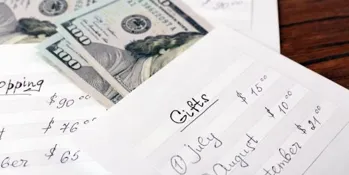- Quick Summary
- Understanding Debt and Financial Health
- Determine Your Debt
- Develop a Budget
- Use the 50-30-20 Budget Rule
- Common Strategies for Debt Management
- Work with Creditors and Collection Agencies
- Avoid Debt Traps
- Regularly Monitor Your Credit Score
- How a FICO Score is Calculated
- What Can Lower Your Score
- What Ruins Credit Scores
- Maintain Long-Term Financial Stability
- Stay Motivated and Accountable
- Conclusion
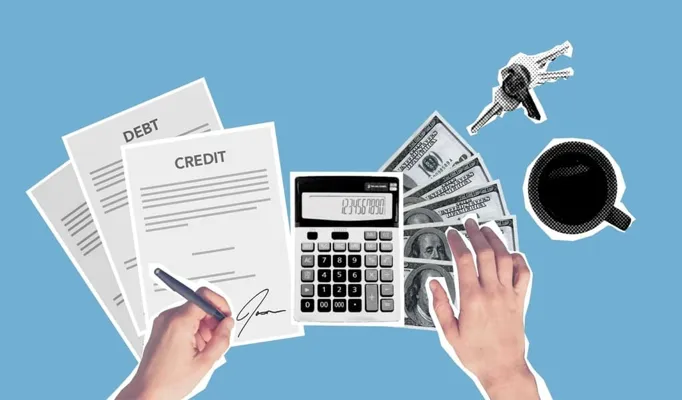
- Quick Summary
- Understanding Debt and Financial Health
- Determine Your Debt
- Develop a Budget
- Use the 50-30-20 Budget Rule
- Common Strategies for Debt Management
- Work with Creditors and Collection Agencies
- Avoid Debt Traps
- Regularly Monitor Your Credit Score
- How a FICO Score is Calculated
- What Can Lower Your Score
- What Ruins Credit Scores
- Maintain Long-Term Financial Stability
- Stay Motivated and Accountable
- Conclusion
Debt can sabotage your finances and your lifestyle. It's insidious and sneaks up on you fast if you're not vigilant. And it can torpedo your credit score. Without more than a good credit score, you'll be hand-tied as to what you can do financially. There'll be no house, and there will be no new car.
But how can you avoid hurting yourself through debt? Learn what causes debt and what you can do to fight it. Here's a guide on how to manage your debt.
Understanding Debt and Financial Health
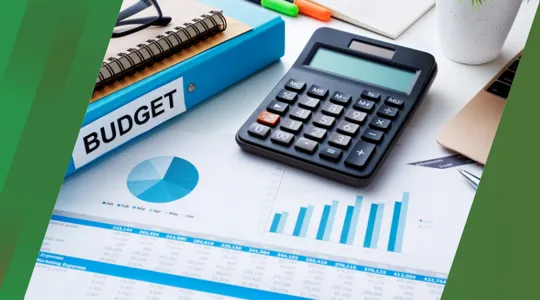
Understanding debt and its impact on financial health is crucial for effective debt management. Debt can be a useful tool for achieving financial goals, such as buying a home or financing education, but it can also lead to financial difficulties if not managed properly. To maintain good financial health, it’s essential to understand the different types of debt, including good debt and bad debt, and to develop a plan to manage debt effectively.
Good debt, such as a mortgage or student loan, can be beneficial for long-term financial goals. These types of debt often come with lower interest rates and can help you build equity or increase your earning potential. On the other hand, bad debt, such as credit card debt, typically carries high-interest rates and can quickly spiral out of control if not managed properly. Prioritizing debt payments, making timely payments, and avoiding the accumulation of new debt are key strategies for maintaining good financial health.
Determine Your Debt
This is the depressing part of this guide. You first need to determine your debt. Write everything you owe down on paper or type it in a spreadsheet.
Nothing should be excluded. If you have a car payment, that’s debt. Any credit card bills are debt. If you owe money to a friend or family member, write it down. Personal loans are debt.
Don’t leave anything off your list, no matter how much it hurts. You need to know how much you owe before you can start managing it.
Once you’ve written down your debt, go back and write down the interest you’re paying on each item. You should also write down the minimum monthly payment.
By writing all of this down, you’ll determine which ones are causing you the most financial pain and ensure you are aware of the minimum payments required to avoid negative impacts on your credit score.
Develop a Budget

This one feels like a chore, and few people want to do it. But it's the core of any debt management plan. Everyone needs a budget. If you owe a lot of money to creditors, this single task can help you avoid those debt collection phone calls and the negative effects on your credit score.
Think of a budget as your GPS. You can’t go anywhere without knowing the starting point and the destination. You also need to know where the construction and speed traps are located. A budget can keep you on the straight and narrow and avoid obstacles that will deter you from reaching your goal.
Use the 50-30-20 Budget Rule
The 50-30-20 rule determines how you will split up your monthly paycheck and allocate spending categories in your budget. It starts with knowing your income.
Write down every bit of income you have coming in each month. You have your nine-to-five job paycheck, of course. But you may have bonuses too. Do you have a side hustle? Write it down.
Once you have your income written down, apply the 50-30-20 rule.
Basic Expenses: 50%
You need your complete income because you’re about to distribute it.
The rule allocates 50 percent of your net or after-tax income toward necessities. These necessities are:
- rent
- car payment
- insurance
- utilities
- groceries
- credit cards
- mortgage payments
If it’s more than 50 percent, you have a problem and you’ll need to cut back. That could mean moving to a smaller apartment or getting a roommate. Are you watching your budget when grocery shopping? Do you need a car?
Do whatever you must to reduce that 50 percent.
Fun Stuff: 30%
So, if your necessities account for half your income, you need to consider how the rest should be allocated.
Check out your credit card and bank statements. They can help you see exactly where you're spending your money. Look back at several months and write down per month what fun stuff you're spending on to enjoy life. Are you enjoying life too much?
You then allocate 30 percent of your income to wants. These are things you don't need, but that make life enjoyable. They could be:
- dinner in restaurants
- take out
- concert tickets
- new clothes
- alcoholic drinks
- streaming services
What can you do without? Do you need to go out for drinks every night? Many people are cutting this nicety out of their lives. One in two Americans is drinking less to save money, and you could be one of them.
Do you need four or five streaming services? Cut back to one or two. And dinner in a restaurant or takeout should be a treat, not a weekly activity. F
Find ways to cut your wants.
Cut Down on Debt and Build Wealth: 20%
The final 20 percent goes to either debt repayment or savings, depending on where your financial pain is. This one requires discipline. Instead of the required credit card minimum, you have in your necessity silo, you add it to the remaining 20 percent of your income.
If you have debt, don't be tempted to put all the 20 percent into a savings account. You'll be paying more in credit card interest than you'd receive in savings account interest, which will wash out your savings plan.
If you have manageable credit card debt, such as a low or no balance, then put that 20 percent in a high-yield savings account for an emergency fund.
Common Strategies for Debt Management
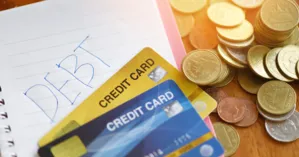
Once you’ve developed your budget and have a handle on what you owe, you can start paying down debt. For additional support, consider reaching out to Money Management International, which offers services related to debt management plans and credit counseling.
There are three different approaches to debt reduction. One is the debt avalanche method.
Debt Avalanche Method
This method focuses your repayment on high-interest debt. Rank your debt from highest interest to lowest interest.
You then pay the minimum for all the credit cards except the one with the highest interest rate.
After you've paid off the high-interest debt, move your attention to the debt with the second-highest interest rate and repeat the process. By the time you've finished, all your debts will have been fully paid.
Going after the highest interest first is important because interest continues to accrue over time. Targeting the high-interest one helps reduce the overall debt cost.
However, if your highest-interest debt has a large balance, it might take a while to pay it off.
Debt Snowball Method
This method focuses on paying the smallest debt first, regardless of their interest rates. You must write down your debt from the smallest balance to the largest regardless of interest rates.
You then pay the minimum payment on all the debt except the smallest. Focus on paying the smallest balance first with extra payments from your designated 20 percent.
After you have paid your smallest debt, move on to the next smallest and repeat the process with the next one.
The snowball method is good from a psychological perspective because you see your debt eliminated quickly. It helps keep you motivated.
Debt Consolidation Method
Debt consolidation combines all the outstanding balances into one debt. It gives you a single monthly payment.
There are several ways to consolidate debt. You could do a balance transfer on a credit card that gives you lower interest. This will allow you to combine multiple credit cards.
Keep in mind that if you transfer your balance to another credit card, it must have a lower interest rate than the one you're currently paying. Otherwise, it defeats the purpose.
Another option is a debt consolidation loan. With this loan, you can pay off your debts in one lump sum and pay them back over time.
If you're a homeowner, you could apply for a loan backed by your home equity. This can make it easier to track what you owe and reduce missing payments because your house is on the line. It may also save you money if the interest rate is lower than any credit card.
Although this is a viable option, many believe you shouldn't chase debt with more debt. So, you should way your options carefully.
Work with Creditors and Collection Agencies
When dealing with debt, it’s essential to work with creditors and collection agencies effectively. This can involve negotiating payment plans, consolidating debt, and communicating with creditors to avoid late fees and negative credit reporting.
To work with creditors and collection agencies effectively, it’s essential to:
-
Communicate clearly and transparently about financial difficulties. Let your creditors know if you’re struggling to make payments; they may offer temporary relief or alternative payment options.
-
Negotiate payment plans that are realistic and achievable. Propose a payment plan that fits within your budget and stick to it.
-
Consider debt consolidation options, such as debt consolidation loans. These can simplify your payments by combining multiple debts into one, often with a lower interest rate.
-
Make timely payments to avoid late fees and negative credit reporting. Consistent, on-time payments can help improve your credit score over time.
Avoid Debt Traps
Debt traps can be avoided by being mindful of debt accumulation and taking steps to manage debt effectively. Some common debt traps include:
-
High-interest credit card debt: Avoid carrying large balances on high-interest credit cards. Pay off your balance in full each month if possible.
-
Payday loans: These short-term loans often come with exorbitant interest rates and fees. Avoid them unless absolutely necessary.
-
Debt consolidation scams: Be wary of companies that promise to eliminate your debt for a fee. Research any debt consolidation service thoroughly before committing.
-
Credit card debt with high fees and interest rates: Read the fine print on credit agreements and avoid cards with high fees and interest rates.
To avoid debt traps, it’s essential to:
-
Be cautious of credit card offers and promotions. Not all offers are beneficial; some may come with hidden fees or high-interest rates.
-
Read the fine print on credit agreements. Understand the terms and conditions before signing up for any credit product.
-
Avoid payday loans and other high-interest debt options. Look for alternative solutions, such as personal loans with lower interest rates.
-
Consider debt consolidation options carefully. Ensure that the consolidation loan offers a lower interest rate than your current debts.
Regularly Monitor Your Credit Score
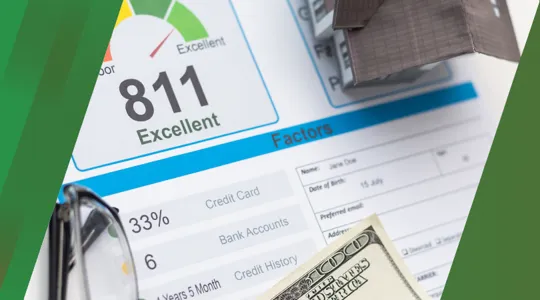
You should religiously check your credit score at least monthly. You might see items that aren't yours, and you'll need to have them corrected. For example, you might see credit cards you don't possess or late payments that aren't true.
But just as important, you’ll see where you stand financially and can address them before they become overwhelming.
How a FICO Score is Calculated
Your credit score is a three-digit number that helps financial institutions like credit card companies and banks evaluate your credit history. They use it to estimate the risk of extending credit to you. The most common is the FICO score.
The FICO score is calculated based on five common elements. These are:
-
payment history – 35%
-
amounts owed – 30%
-
length of credit history – 15%
-
new credit and recently opened accounts – 10%
-
types of credit in use – 10%
To have a good score, you must show responsible credit management. A history of late payments or high credit use will lower your FICO score.
These are risk factors that lenders and credit card companies consider when determining whether to give you credit.
What Can Lower Your Score
A history of late payments or high credit use will cause your FICO to suffer. These are risk factors that lenders and credit card companies look at when determining if they’ll give you credit.
There are several factors that can lower your credit score.
Late or Missed Payments
With 35 percent of the FICO scored determined by missed or late payments, managing your debt is critical. Your payment history includes:
- credit cards
- retail accounts
- installment loans
- mortgage
Liens, foreclosures and bankruptcies can also tank your FICO. Past-due items and how long they have been past due will also send your FICO spiraling downward.
Too Much Used Credit
Having too high credit being used indicates to lenders that you may be overextended. More than 30 percent is the number they look at. If you have that lenders may think you’re a risk and could have trouble paying a loan back.
No or Little Credit History
The length of credit history will also play a role. A younger person will have a lower credit score than an older one. Lenders want to see that you've repaid debt in the past. That's why you shouldn't close a paid-off credit card. You'll lose the credit history.
Frequent Requests for Lines of Credit
New requests don't mean soft inquiries or checking your credit score. Companies that make inquiries before sending you pre-approved credit card promotions will not affect your credit score. But if you've opened several accounts in a short period compared to the total number of accounts, it will hurt your credit score.
Not Enough Types of Credit
Having only one type of credit, like credit cards, can negatively impact your FICO. You should have various credit types, like a car or house payment.
What Ruins Credit Scores
Once more, making late payments, no payments, or opening too many credit cards can harm your credit score.
You can ruin your credit if you file for bankruptcy or have a debt settlement. That's why you must budget and manage your debt. Negative information will stay on your credit report for seven to ten years.
Maintain Long-Term Financial Stability
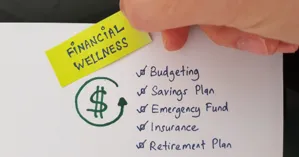
Maintaining long-term financial stability requires a combination of effective debt management, saving, and investing. To achieve long-term financial stability, it’s essential to:
-
Develop a budget and stick to it. A well-planned budget helps you track your income and expenses, ensuring you live within your means.
-
Prioritize debt payments and make timely payments. Paying off high-interest debt first can save you money in the long run.
-
Build an emergency fund to cover unexpected expenses. Aim to save at least three to six months’ worth of living expenses.
-
Invest in a diversified portfolio to achieve long-term financial goals. Diversification can help manage risk and grow your wealth over time.
Stay Motivated and Accountable

Staying motivated and accountable is essential for achieving financial freedom. To stay motivated and accountable, it’s essential to:
-
Set clear financial goals and track progress. Whether it’s paying off a specific debt or saving for a major purchase, having clear goals can keep you focused.
-
Celebrate small victories along the way. Recognize and reward yourself for reaching milestones, no matter how small.
-
Seek support from friends, family, or a financial advisor. Having a support system can provide encouragement and advice.
-
Use tools and resources, such as budgeting apps and financial calculators, to stay on track. These tools can help you monitor your progress and make informed financial decisions.
By following these tips and strategies, individuals can maintain long-term financial stability, avoid debt traps, and achieve financial freedom.
Conclusion
Managing your debt is imperative to financial soundness. It's also one of the main ways to have a good life.
Use one of the different strategies to pay down debt and check your credit report often. There’s less stress if you have your debt under control.



